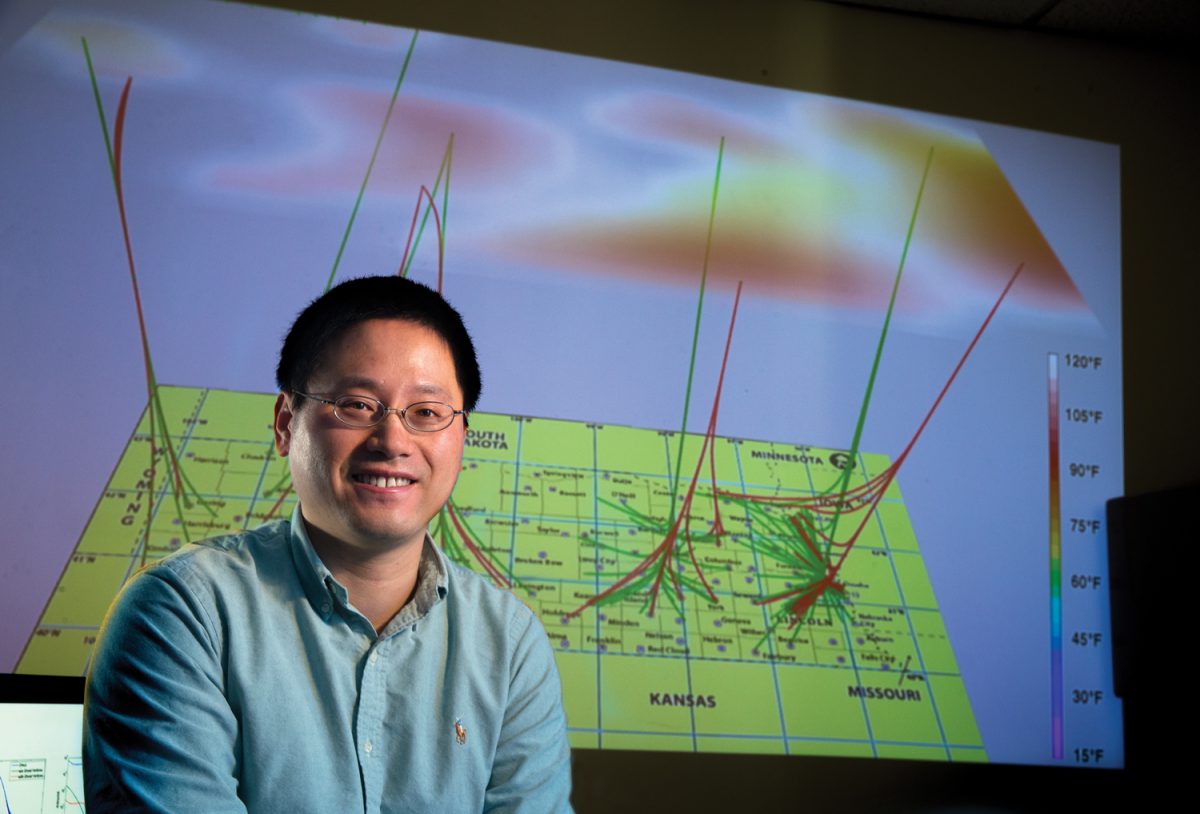CAREER Awards Support Diverse Research
Nebraska researchers are solving today’s complex challenges with Faculty Early Career Development Program awards from the National Science Foundation. These prestigious five-year awards support promising pre-tenure faculty. Recent winners are investigating K-12 math curricula and computer network visualization tools.
Supporting Future Math Teachers

While developing math curricula receives much research attention, little effort goes toward helping K-12 math teachers use textbooks effectively. Nebraska education researcher Lorraine Males received a $630,000 CAREER award to support future teachers in employing math curricula.
Males studies how teachers currently approach textbooks. She will use the results to develop teacher education materials for college-level courses, with the goal of better preparing students for teaching positions.
Males’ team is interviewing Nebraska teachers as they actively plan a classroom lesson to understand their rationale as they move through the planning process. Males also uses eye-tracking technology, which monitors eye movements, to observe how teachers visually approach the material.
From this research, Males will develop college-level instructional materials. To evaluate effectiveness, her team will follow up with former students as they begin their teaching careers. She’ll make the materials available nationally.
Expanding Network Visualization Capabilities

Solving a mystery usually involves understanding connections. Nebraska computer scientist Hongfeng Yu received nearly $477,000 to expand network visualization capabilities that could help crack complex scientific puzzles.
Yu is creating software that allows users to visualize and explore billions, even trillions, of interconnected entities. Expanding that capability has diverse applications, from better understanding gene regulation networks to improving supercomputing speeds and investigating large social networks. These advancements could lead to better disease treatments, climate change mitigation and improved disease-spread tracking, among many other applications.
Network visualization can be a simple family tree or a complex map illustrating connections among Facebook’s 2 billion users. As the number of entities increases, individuals disappear into a solid mass.
Yu is developing techniques to identify, extract and organize information from within densely interconnected large graphs. Preprocessing information allows users greater manipulation and visualization options. Nebraska’s Holland Computing Center facilitates his research.
+ Additional content for CAREER Awards Support Diverse Research
Males' CAREER award to boost teacher education, student learning